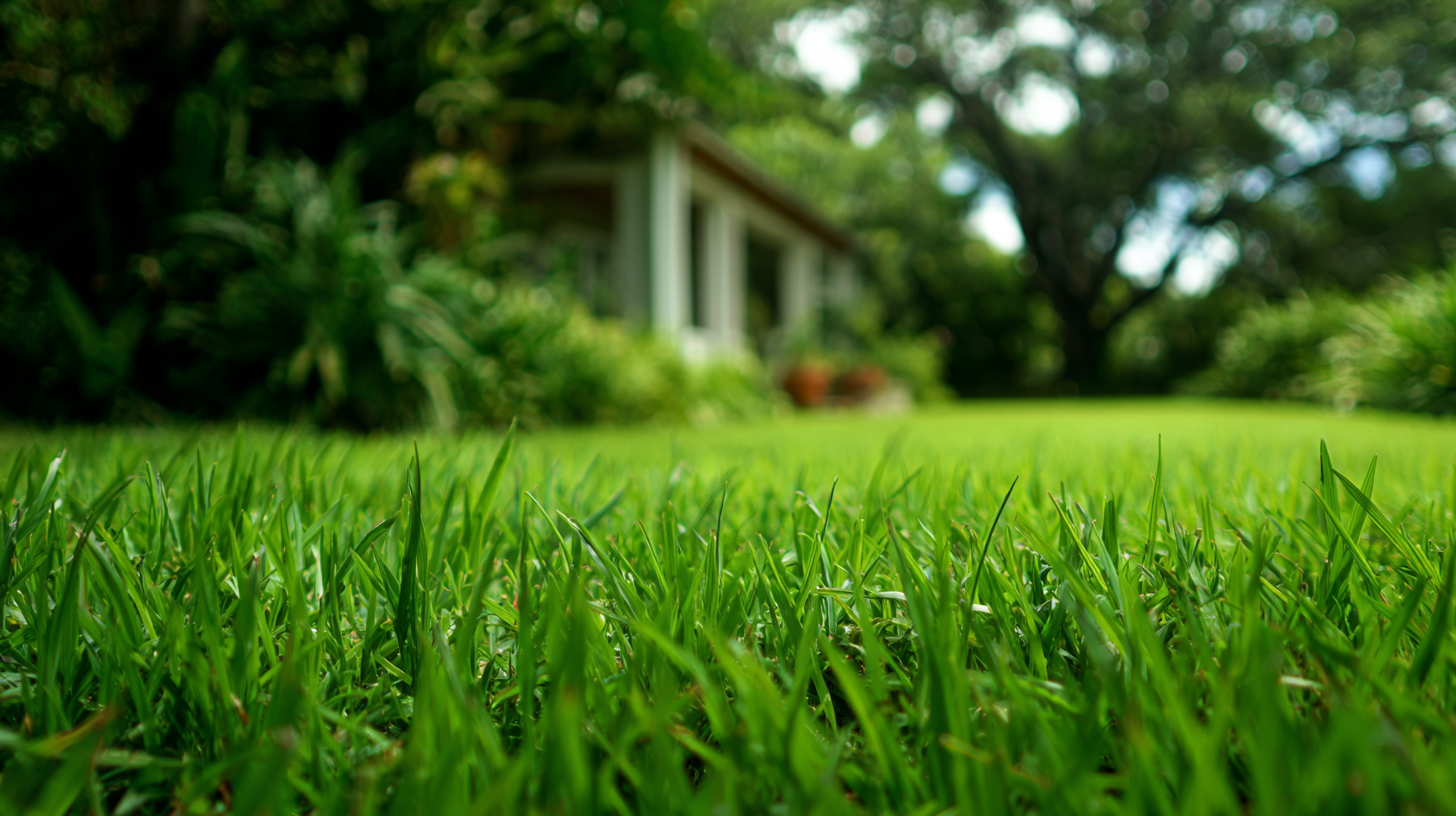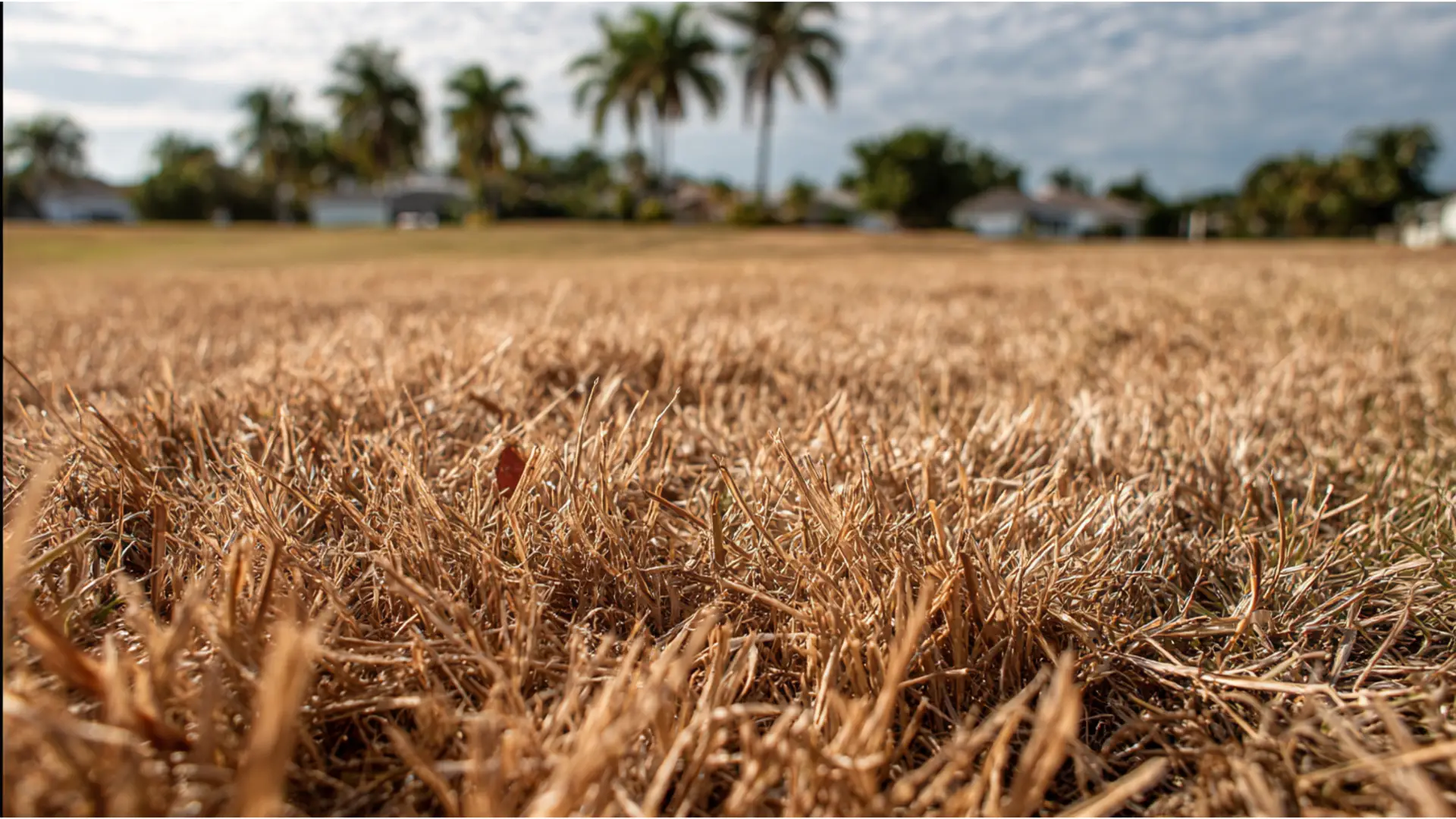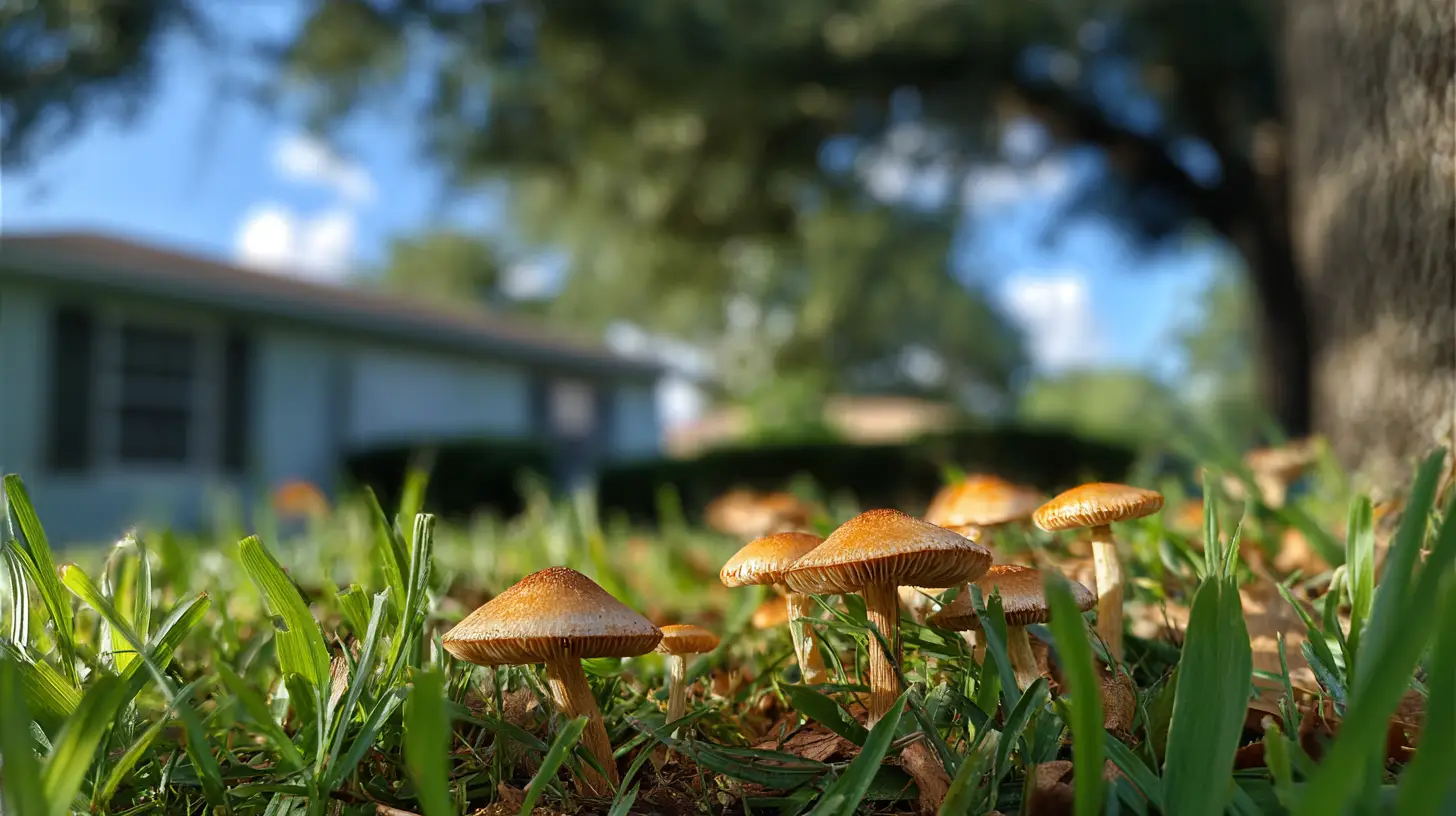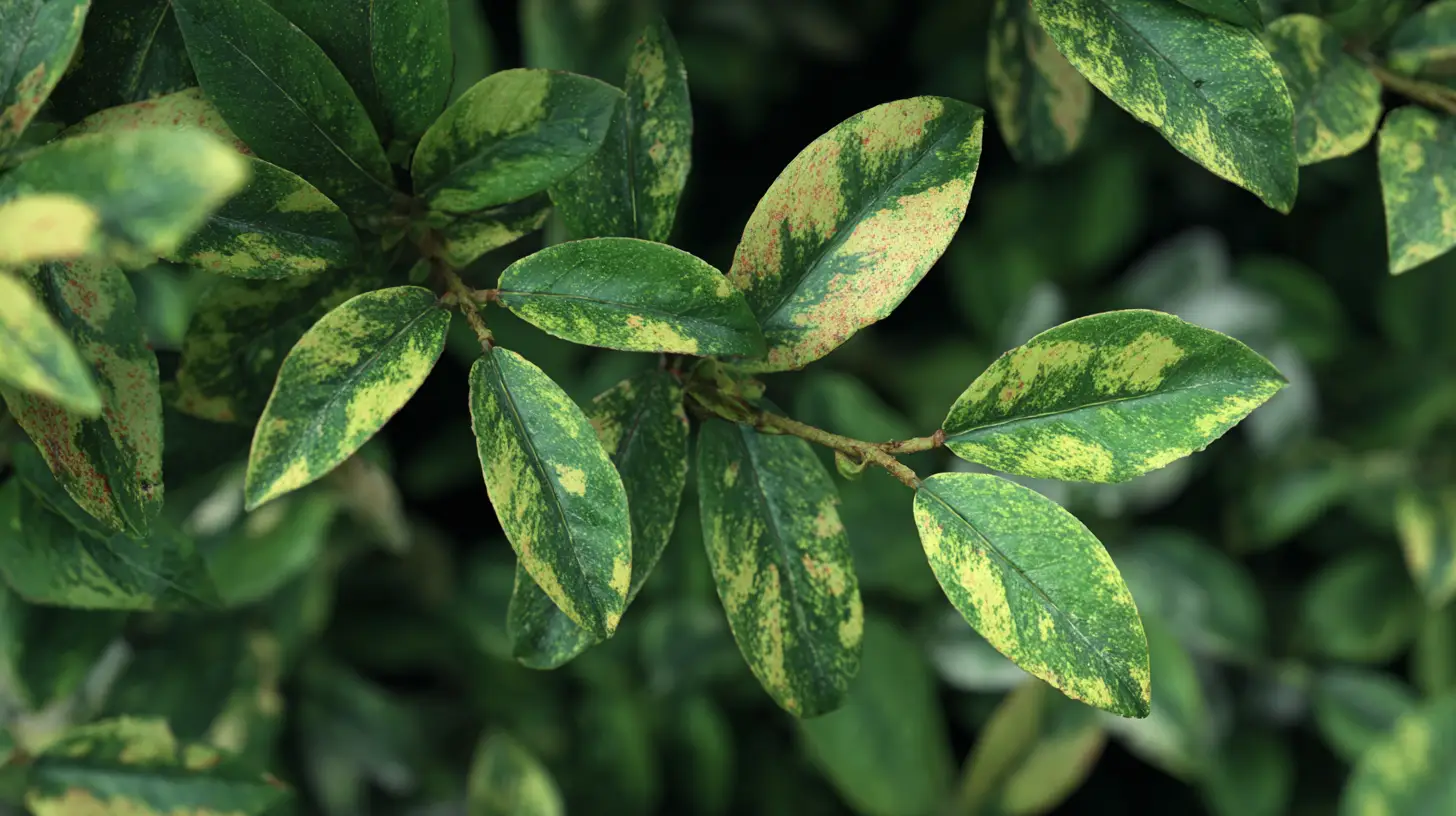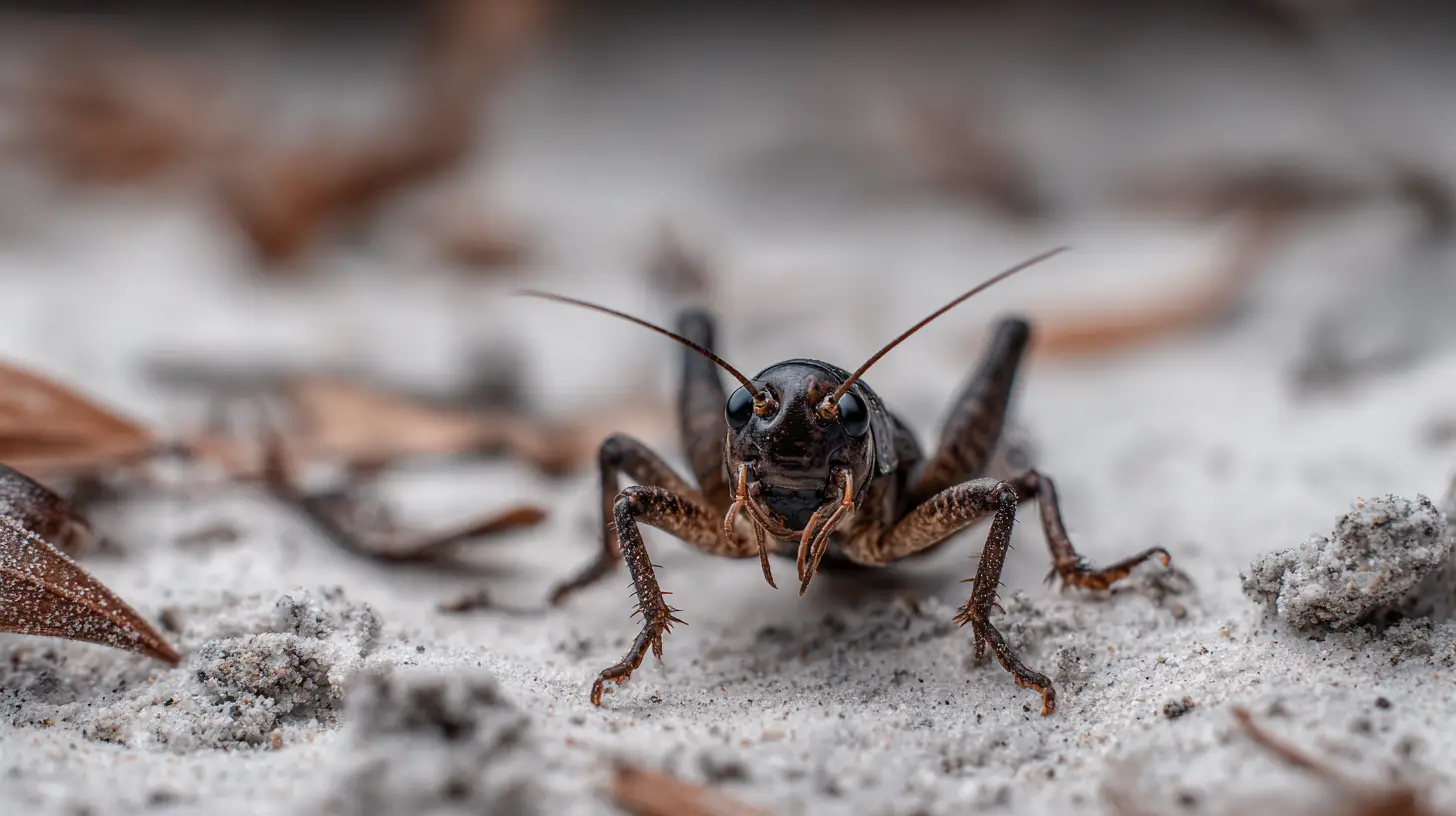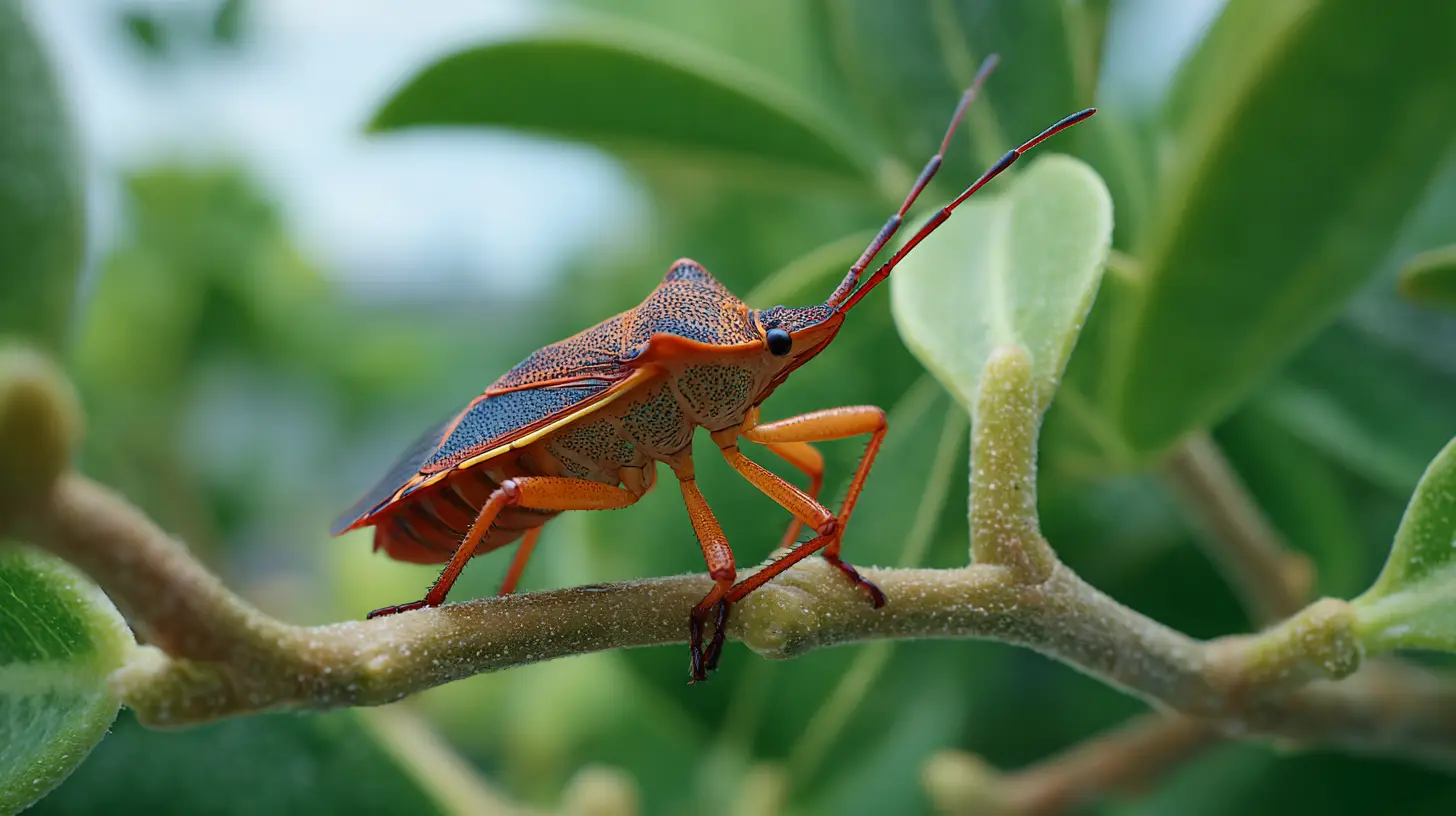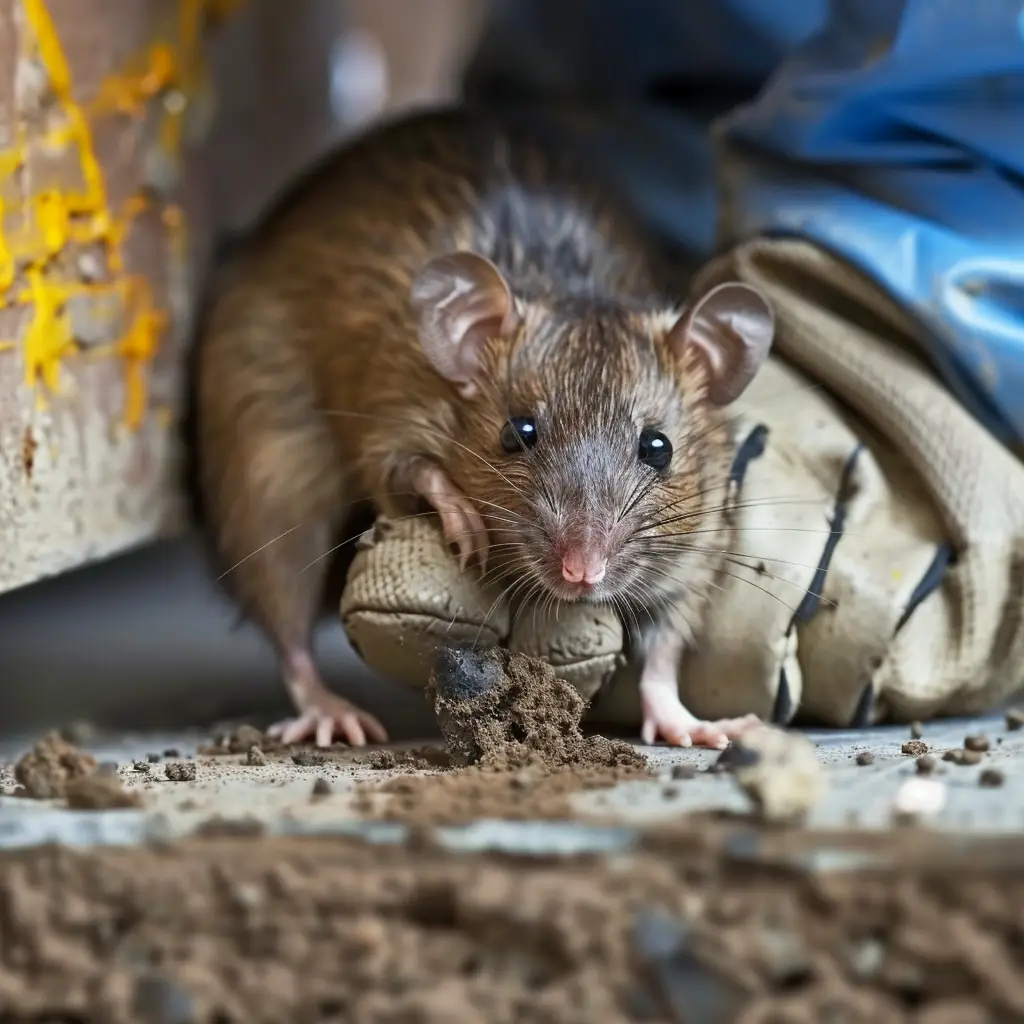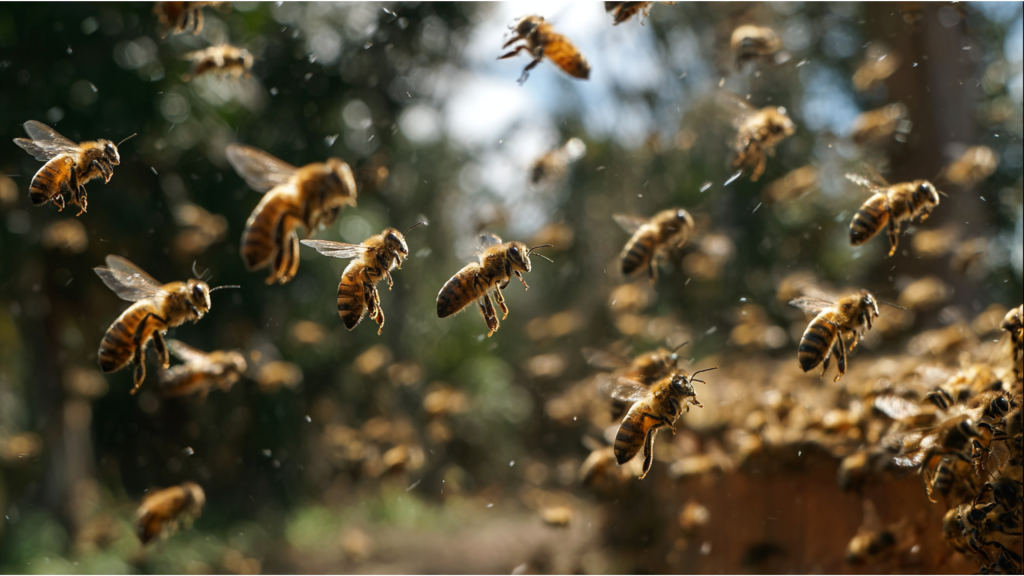
Table of Contents
If you’ve lived in Bradenton long enough, you’ve probably heard whispers (or full-blown news reports) about Africanized bees—the so-called “killer bees.” And no, that’s not just some horror movie nickname; these bees really do come with an attitude problem. They’re a hybrid of African honey bees and European honey bees, and they’ve made their way across Florida thanks to our warm, subtropical climate that’s basically paradise for stingers.
These bees aren’t here to politely pollinate your flowers and move along. They’re aggressive, they defend their colonies like tiny winged warriors, and they don’t quit once they’re riled up. In Bradenton, they’ve been spotted in wall voids, irrigation boxes, tree cavities, and even abandoned sheds. If there’s a hole the size of a dime, they’ll set up shop.
Key Takeaways
- They’ve been in Florida since the early 2000s and are now established in Manatee and Sarasota counties.
- Africanized bees swarm more frequently than European bees—several times per year.
- They’ll chase a threat up to a quarter mile, far longer than regular honey bees.
- Professional removal is best handled at night or early morning when they’re calm and in the hive.
- Licensed pest professionals use deltamethrin dust, permethrin sprays, foams, or even soapy water for emergency knockdowns.
Why Bradenton is Prime Real Estate for Africanized Bees
Here’s the deal: Bradenton has the perfect recipe for Africanized bee drama. Warm, humid air? Check. Abundant flowers and crops? Double check. Lots of residential growth with structures that have plenty of voids and gaps? That’s the jackpot.
Unlike their European cousins who tend to keep colonies in managed hives, Africanized bees prefer to spread into whatever cavity looks cozy. That might mean your pool pump housing, a hole in your soffit, or even a water meter box. Once established, they reproduce quickly and swarm more often, which means the problem doesn’t just stay put—it spreads.
A study from the University of Florida reported that Africanized colonies are responsible for more than ten times the number of stinging incidents compared to European bees. While their venom is the same, it’s the sheer number of stings that makes encounters dangerous. People in Bradenton neighborhoods have been hospitalized from attacks that started with something as simple as mowing the lawn near a hidden colony.

Get Pest-Free Today!
Trust Waves Pest Control for expert pest solutions in Florida. Call now or request your free quote online!
Request a QuoteHow Professionals Handle Africanized Bees in Bradenton
So, how do the pros deal with them? Carefully—and only during the right hours. The safest time to approach an Africanized hive is just before sunrise or after sunset when nearly all the bees are inside and less active. Showing up at noon would be like poking a hornet’s nest with a stick—except this hornet’s nest has thousands of backup stingers.
Once suited up in full protective gear, professionals may:
- Seal entrances with insecticidal foam to keep bees from swarming out.
- Inject dusts like Delta Dust® (deltamethrin) into wall voids so the bees spread it around the colony.
- Spray permethrin aerosols into exposed hives for fast knockdown.
- Use a 5% soapy water solution for swarms clumped on trees or fences.
After extermination, the hive comb must be removed. Leaving it behind means rotting honey, structural damage, and an open invitation for another swarm to move right back in.
What You Can Do to Stay Safe
- Don’t block or seal holes if bees are actively going in and out—you’ll just trap them inside your wall or attic.
- Keep your distance. Africanized bees defend their colony more aggressively than any other bee in Florida.
- Call a licensed pest control operator in Bradenton who knows the regulations and has the tools for safe removal.
- If you’re attacked, run in a straight line and get indoors—don’t swat, don’t jump in water (they’ll wait you out).
Frequently Asked Questions (FAQs)
Are Africanized bees more poisonous than regular honey bees?
No—the venom is the same. The danger comes from the sheer number of stings since Africanized bees attack in greater numbers.
How can I tell if the bees around my home are Africanized?
You really can’t by just looking. They’re nearly identical to European honey bees. Behavior is the giveaway—if they respond aggressively to minimal disturbance, chances are they’re Africanized.
Can Africanized bees be relocated instead of exterminated?
In many cases, no. Florida guidelines often recommend extermination for public safety since relocating them risks spreading aggressive genetics.
Why do professionals only work at night or early morning?
That’s when most bees are inside the hive and calmer. Treating them then reduces the risk of mass attacks and ensures a more complete colony kill.
What should I do if I see a swarm in my Bradenton neighborhood?
Stay away and call a professional. Don’t try to spray them yourself—Africanized colonies react fast and aggressively when threatened.


